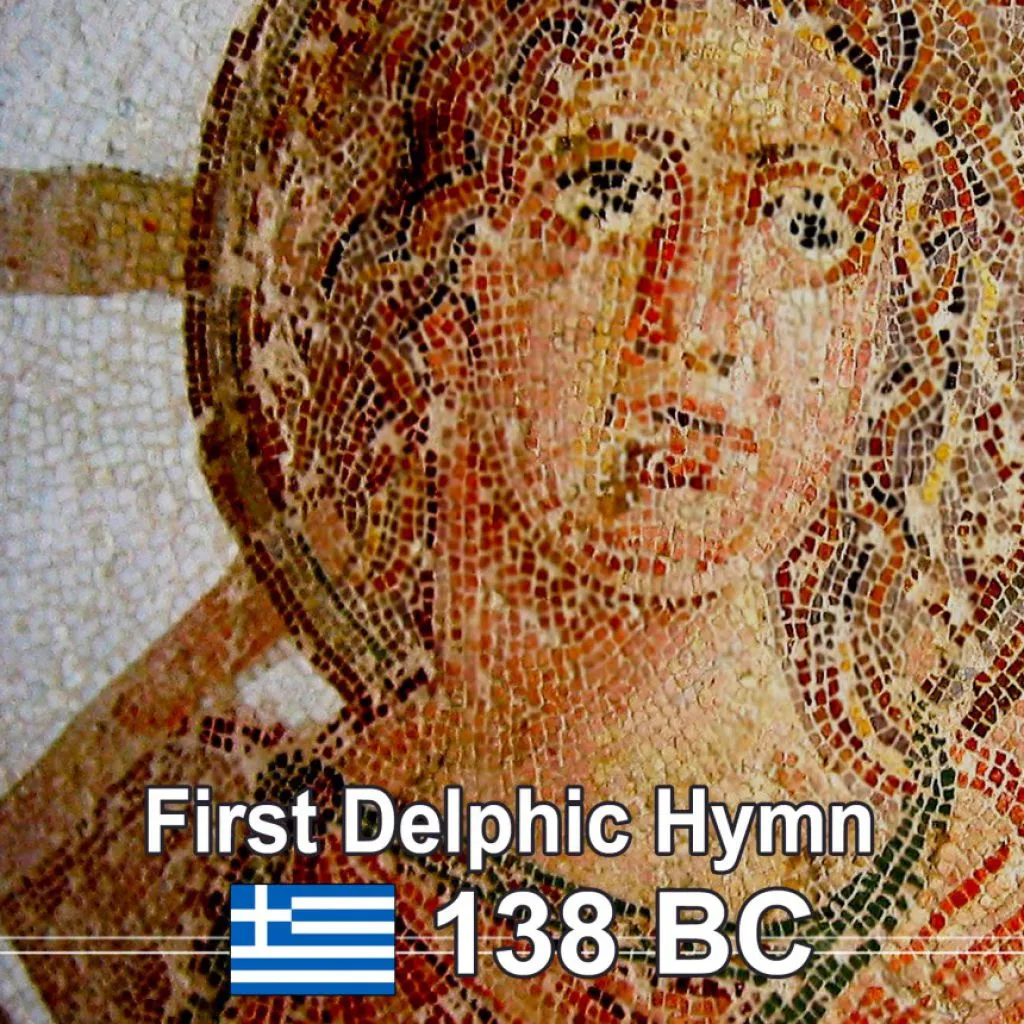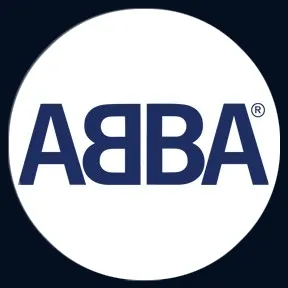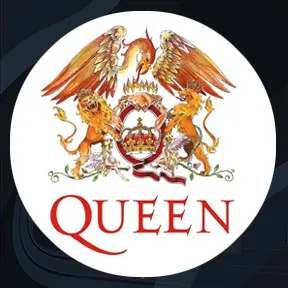
First Delphic Hymn
The Delphic Hymns are two musical compositions from Ancient Greece, which survive in substantial fragments. They were long regarded as being dated circa 138 BCE and 128 BCE, respectively, but recent scholarship has shown it likely they were both written for performance at the Athenian Pythaides in 128 BCE.
If indeed it dates from ten years before the second, the First Delphic Hymn is the earliest unambiguous surviving example of notated music from anywhere in the western world whose composer is known by name.
HISTORY
Both Delphic Hymns were addressed to Apollo, and were found inscribed on stone fragments from the south outer wall of the Athenian Treasury at Delphi in 1893 by French archaeologist Théophile Homolle, while Henri Weil restored the Greek text and Théodore Reinach transcribed the music to modern notation (Weil 1893; Reinach 1893).
Reconstruction of the fragments was facilitated by the fact that the First Hymn uses vocal notation, and the second one employs instrumental notation (Pöhlmann and West 2001, 70).
It was long been believed that all that could be told of the composer of the First Hymn is that it was written by an Athenian, around 138 BCE, since the heading of the inscription giving the name of the composer is damaged and difficult to read. However, careful reading of this inscription shows that it cannot be the ethnic "Athenaîos" (from Athens), but rather names "Athēnaios Athēnaiou" as the composer.
The Second Delphic hymn has been dated to precisely 128 BC, evidently it was first performed in the same year. The name of the composer has also survived, both in the heading of the hymn and in a separate inscription: Limēnios, son of Thoinos, an Athenian.
The occasion of the performance of both hymns was a Pythaid, a special religious procession of the Athenians towards Delphi held on specific occasions, usually after certain omens.
FIRST DELPHIC HYMN
Both hymns are monophonic (consisting of a single melodic line), but are differentiated by their notation. The First Hymn is in so-called vocal notation and it is in the cretic (quintuple) meter throughout.
The First Delphic Hymn falls into two large parts, a Paean (lines 1–27), in three verses, and what might have been called a Hyporchema or dance (lines 27–34). However, almost all of the last part is lost.
FIRST VERSE
In this verse the singers call on the Muses (goddesses of music and dance) to leave their home on Mount Helicon and to join in the song in honour of Apollo. This part has been translated by Armand D'Angour as follows:
"Hark, you whose domain is deep-forested Helicon, loud-thundering Zeus’ fair-armed daughters: come with songs to celebrate your brother Phoebus of the golden hair, who over the twin peaks of this mountain, Parnassus, accompanied by the far-famed Delphic maidens, comes to the streams of the flowing Castalian spring as he visits his mountain oracle."
Ten different notes in all are used in this first verse. The fourth note from the bottom (written Μ mu in the Greek alphabet or the note C in the conventional modern transcription) is the so-called mesē, or central note, to which the music most often returns (Landels 1999, 96, 228). Music with this mese was said to be in the Phrygian mode. There are more notes above the mese than below it. F and B♭ below the mese are not used, and the lowest note, here E♭, is used only in the first section of the hymn. The note immediately above the mese D♭ (written Λ lambda in Greek) occurs only in one place in section one, in bar 24, but is much more extensively used in verse 2.
SECOND VERSE
The second verse describes the presence of the delegation from Attica and the sacrifice of Arabian incense and young bulls that they are making. It also mentions the sound of the pipes (auloi) and the lyre (cithara) accompanying the sacrifice.
The text reads:
"Behold, Attica with its great city (Athens) is at prayer, dwellers on the unconquered land of the armed Tritonian goddess (Athena); and on the holy altars Hephaistos (i.e. fire) consumes the thighs of bull-calves; and together with the smoke, Arabian incense rises to the heavens. And the shrill, blaring aulos weaves a melody with fluttering notes, and the golden, sweet-voiced kithara blends with the song of praise."
THIRD VERSE
The third verse is rather fragmentary, with several gaps in the words and music, but enough survives to make sense of it. In this verse the singers address Apollo directly, and describe how he took over the prophetic tripod at Delphi after killing the snake that guarded it, and how once he thwarted an army of invading Gauls.
This verse returns to the same key as the first. As in the first verse, the small intervals above and below the mese are once again not used. There are some octave leaps, and "the tone is bright and clear".














































